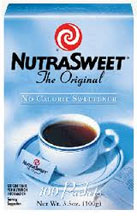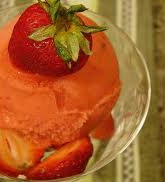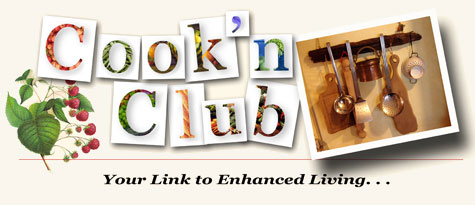Be Picky About Sugar-Free Foods
By Alice Osborne
 Sari Harrar, nutritionist, says in her book, The Sugar Solution, that some foods labeled "sugar-free" or "no sugar added" may actually raise our blood sugar nearly as much as the regular version. That's because some sugar-free cookies, cakes, or other sweet treats may contain nearly as many carbohydrates as the real, sugar-laden thing. Adding insult to injury, they may also pack nearly as many calories. This information is a well kept secret!
Sari Harrar, nutritionist, says in her book, The Sugar Solution, that some foods labeled "sugar-free" or "no sugar added" may actually raise our blood sugar nearly as much as the regular version. That's because some sugar-free cookies, cakes, or other sweet treats may contain nearly as many carbohydrates as the real, sugar-laden thing. Adding insult to injury, they may also pack nearly as many calories. This information is a well kept secret!
And the other fact is, not all sugar substitutes are the same - which is another reason to be a label reader. Here's what we need to know about them:
Sugar alcohols: Sorbitol, maltitol, and mannitol are the common ones. These carbohydrate-based ingredients contain about half the calories of regular carbs, about 2 per gram. By law, they don't have to be counted as sugars on the Nutrition Facts panels, but they still add to the bottom-line carb count. Most experts feel we're better off eating a small portion of the real thing.
 I agree, from painful, first-hand experience. We have a delightful candy factory near my home, The Peppermint Place. And in the store they have a display case of the most gorgeous sugar-free candies you've ever seen. One day I bought a smallish bag of sugar-free turtles and sugar-free black licorice (two of my very favorite candies). Having the self-control of a two-year-old, I ate every one of them before I even made the three block drive to my house! Oh man was I in pain. Come to find out, they are made with mannitol - which unbeknownst to me, causes intense digestive gas. I thought I was going to explode. I learned from that little adventure how temperance can save us from the aftermath of excess! From now on, it's just ONE of the real thing.
I agree, from painful, first-hand experience. We have a delightful candy factory near my home, The Peppermint Place. And in the store they have a display case of the most gorgeous sugar-free candies you've ever seen. One day I bought a smallish bag of sugar-free turtles and sugar-free black licorice (two of my very favorite candies). Having the self-control of a two-year-old, I ate every one of them before I even made the three block drive to my house! Oh man was I in pain. Come to find out, they are made with mannitol - which unbeknownst to me, causes intense digestive gas. I thought I was going to explode. I learned from that little adventure how temperance can save us from the aftermath of excess! From now on, it's just ONE of the real thing.
 Sugar substitutes: Acesulfame-K (Sweet One), aspartame (Nutrasweet), and sucralose (Splenda) contain no calories or carbohydrates. Of all these, Splenda has drawn the least amount of controversy over its safety. It's one of the most-tested, and as of 2004 (when The Sugar Solution was written) it's shown no harmful effects in more than 100 studies on humans and animals. And unlike some sugar substitutes, we can bake with it. That's very encouraging. I still prefer stevia over sucralose. But if you're a Splenda lover and user, note the bottom line: Check the carb content of any food sweetened with sugar substitutes. There may be a lower-carb way to enjoy a little treat.
Sugar substitutes: Acesulfame-K (Sweet One), aspartame (Nutrasweet), and sucralose (Splenda) contain no calories or carbohydrates. Of all these, Splenda has drawn the least amount of controversy over its safety. It's one of the most-tested, and as of 2004 (when The Sugar Solution was written) it's shown no harmful effects in more than 100 studies on humans and animals. And unlike some sugar substitutes, we can bake with it. That's very encouraging. I still prefer stevia over sucralose. But if you're a Splenda lover and user, note the bottom line: Check the carb content of any food sweetened with sugar substitutes. There may be a lower-carb way to enjoy a little treat.
 Again, Harrar and other insulin-trained experts all seem to suggest though, that small portions of the real McCoy is often the best approach. One other way to create a sweet treat is to puree fresh fruit and freeze. This "sorbet" can go a long way to calming a raging craving. In closing, we're wondering how YOU deal with your sweet tooth and what your thoughts are on sugar substitutes. We're all in this together, so let's share. Email me and let's see what we come up with for a future article!
Again, Harrar and other insulin-trained experts all seem to suggest though, that small portions of the real McCoy is often the best approach. One other way to create a sweet treat is to puree fresh fruit and freeze. This "sorbet" can go a long way to calming a raging craving. In closing, we're wondering how YOU deal with your sweet tooth and what your thoughts are on sugar substitutes. We're all in this together, so let's share. Email me and let's see what we come up with for a future article!

